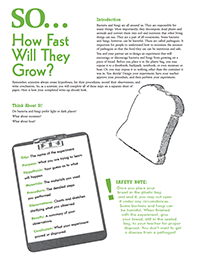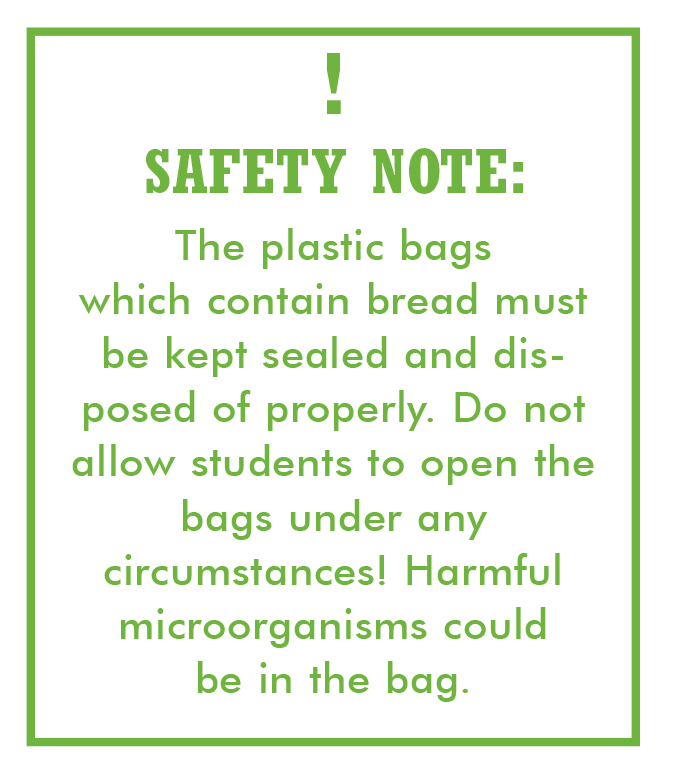 Relevancy and Engagement
agclassroom.org/az/
Relevancy and Engagement
agclassroom.org/az/
Companion Resource

Food Safety from Farm to Fork: How Fast Will They Grow?
Students, acting as scientists, will explore bacteria and fungi. They will design an experiment that will promote or minimize the bacterial and fungal growth on a piece of white bread. This activity can supplement any lesson on food safety or the scientific method.
Time to Complete
30 minutes, plus observation time
Materials
- White bread without preservatives, two pieces per team
- Re-sealable plastic bags
- Thermometer
- Dark closet or shoebox with lid
- Hand lenses or microscopes
- Water
- Eye droppers
- Refrigerator access
Procedures
- Prior to this activity, students should understand what bacteria are and that most are beneficial. Those which cause illness are called pathogens. Review if necessary.
- Show the students the supplies for an experiment they will design. The goal is to either promote or minimize bacterial/fungal growth on a piece of white bread over a two-week period.
- Have the students design and complete their experiments, record observations every other day and, after two weeks, write a formal lab report using the guidelines provided.
- Discuss what is needed for bacteria to grow and what might minimize their growth. Relate this to food preservation and safety.
 Divide students into teams of three. Assign each group one method of food preservation — drying, freezing, canning, fermenting, smoking, salting, pasteurizing. Using books and on-line sources, they are to:
Divide students into teams of three. Assign each group one method of food preservation — drying, freezing, canning, fermenting, smoking, salting, pasteurizing. Using books and on-line sources, they are to:
- Research their assigned form of food preservation
- Learn about its history
- Create a list of examples
- Find out how it is done today
- Create a poster with pictures and words that describes their food preservation process.
File, Map, or Graphic
Author
California Foundation for Agriculture in the Classroom
Sources
This activity was sponsored by the Alliance for Food and Farming and the California Beef Council